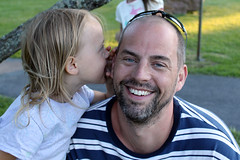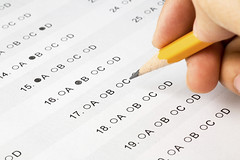| 8076779448 | Sigmund Freud | Founder of psychoanalysis Originally a medical doctor and found that his patients were suffering from an illness with psycho-logical causes This led him to develop theories of the unconscious mind, psycho-sexual development and Psychoanalysis |  | 0 |
| 8076779449 | Psychoanalytic Theory | Psychologist: Sigmund Freud Behavior is due to unconscious motives and conflicts Early childhood experiences determine personality |  | 1 |
| 8076779450 | Unconscious Mind | -foundation for the psychoanalytic theory -controls the phenomena of repressed feelings, automatic skills, subliminal perceptions, thoughts, habits and automatic reactions as well as possibly holding emotional complexes, phobias and desires. |  | 2 |
| 8076779451 | Id | located in the unconscious present at birth Ruled by the "Pleasure Principle" and has no values, morality, or logic (animal instincts) |  | 3 |
| 8076779452 | Ego | located in both conscious, & unconscious Developed after birth, the self Ruled by the "Reality Principle" and balances the id and superego by being organized, rational, and postponing gratification |  | 4 |
| 8076779453 | SuperEgo | located in both conscious, & unconscious developed by age 5 Ruled by the "Morality Principle" and is the opposite of the Id because it is the internal, parental voice with rules and values |  | 5 |
| 8076779454 | Free Association | A technique used to access the unconscious patient freely exposes his/her ideas, impressions, etc. |  | 6 |
| 8076779455 | Freudian Slips | Slips of the tongue that expose the unconscious |  | 7 |
| 8076779456 | Psychosexual Development | - sequential and discontinuous stages with changing erogenous zone and conflict in each stage if conflict is not successful resolved, the result is fixation O.A.P.L.G (Oral, Anal, Phallic, Latency, Genital) |  | 8 |
| 8076779457 | Oral stage | Age: 0-1 Erogenous Zone: Mouth Task: Oral Activities (sucking, chewing, biting, etc) Fixation: Smoking, Over-eating |  | 9 |
| 8076779458 | Anal stage | Age: 1-3 Erogenous Zone: Anus Task: Potty Training Fixation: Anal retentive or Anal Expulsive |  | 10 |
| 8076779459 | Latency stage | Age: 6 to puberty Erogenous Zone: None Task: develop relationships with same sex peers to strengthen gender identity Fixation: doesn't occur at this stage |  | 11 |
| 8076779460 | Phallic stage | Age: 3-5 Erogenous Zone: Genitals Task: Gender Identity Fixation: Narcissism, Homosexuality |  | 12 |
| 8076779461 | Genital stage | Age: Puberty to death Erogenous Zone: Genitals Task: Find a hetero-sexual relationship Fixation: doesn't occur at this stage but old conflicts will arise |  | 13 |
| 8076779462 | Penis Envy | Freudian theory that girls become upset and scarred because because they don't have a penis and a penis is a key to being successful. Phallic Stage |  | 14 |
| 8076779463 | Electra Complex | girls sexually desire dad and hate mom but need to resolve this in order to develop a gender identity Phallic Stage of Psycho-sexual Development |  | 15 |
| 8076779464 | Oedipus Complex | boys sexually desire mom and hate dad but need to resolve this in order to develop a gender identity Phallic Stage of Psycho-sexual Development |  | 16 |
| 8076779465 | Defense mechanisms | - extreme measures protect the ego from threats; operate unconsciously and deny, falsify, or distinct reality - not successful coping strategies because they do not remove stressors |  | 17 |
| 8076779466 | Neo-Freudians | Jung, Horney, Adler Believed that Freud put too much emphasis on sex and there needed to be more emphasis on social factors |  | 18 |
| 8076779467 | Collective unconscious | Psychologist: Carl Jung Defined: A warehouse of "instinctive memories" passed down to each generation and all humans share and is made up of archetypes |  | 19 |
| 8076779468 | Archetypes | Defined: Inherited universal concepts that create the Collective Unconscious Examples: Anima v. Animus, Mother v. Father, Persona v. Shadow, Hero v. Villain |  | 20 |
| 8076779469 | Basic Anxiety | Psychologist: Karen Horney anxiety that is created by being born helpless. Most overcome this, those who don't develop neurotic personalities- aggressive, compliant, or withdrawn |  | 21 |
| 8076779470 | Womb envy | Psychologist: Karen Horney Defined: women do not suffer from "penis envy" but are envious of male's superior status. Men are envious of a women's ability to have children and therefore, they compensate with other forms of achievement. |  | 22 |
| 8076779471 | Inferiority Complex | Psychologist: Alfred Adler Defined: people who compensate for feelings of inferiority (feeling like they're less than other people, not as good as others, worthless, etc.) by acting ways that make them appear superior. |  | 23 |
| 8076779472 | Projective Tests | Description: Provide ambiguous stimuli in order to trigger the projection of one's inner dynamics Strengths: Provide lots of information Weaknesses: highly subjective and has low reliability Tests: Rorschach Inkblot Test, & Thematic Apperception Test (TAT), Draw a Person test |  | 24 |
| 8076779473 | Rorschach Inkblot Test | seeks to identify people's inner feelings and conflicts by analyzing their interpretations of 10 inkblots. Critics question the validity and reliability of the tests. |  | 25 |
| 8076779474 | Thematic Apperception Test | people view ambiguous pictures and then make up stories about them. Presumably, their accounts reflect their interests and inner feelings. |  | 26 |
| 8076779475 | Humanistic Psychologists | Carl Rogers, Abraham Maslow Description: People develop their personality by trying to reach their full potential Strengths: model was built in a therapy setting Weaknesses: concepts are vague and subjective, individualistic and western based and naive because it fails to appreciate the reality of our capacity for evil |  | 27 |
| 8076779476 | Self-Concept | Psychologist: Carl Rogers Goal: Actualizing Tendency (full potential) Theory: A person has who they are, Real Self, and who they want to be, Ideal Self and a successful persoanlity has congruence People need genuineness (honesty), unconditional positive regard (love), and empathy (understanding) to develop a good persoanlity |  | 28 |
| 8076779477 | Congruence | A person's Real Self and Ideal Self can merge together Part of Roger's Self-Concept Theory | 29 | |
| 8076779478 | Incongruence | When a person's Real Self and Ideal self do not match, causing anxiety. Part of Roger's Self-Concept Theory |  | 30 |
| 8076779479 | Unconditional positive regard | Defined: receiving acceptance, value, and love from others without requirements Part of Roger's Self-Concept theory in which he says it is necessary to receive from others in order to develop a healthy personality |  | 31 |
| 8076779480 | Empathy | People will try to understand one's feelings and mirror it back to them Part of Roger's Self-Concept theory in which he says it is necessary to receive from others in order to develop a healthy personality |  | 32 |
| 8076779481 | Hierarchy of Needs | Psychologist: Abraham Maslow Description: Pyramid |  | 33 |
| 8076779482 | Trait Theories | Description: focuses on identifying how people typically behave but does NOT explain how personality developed Strengths: based on empirical evidence with factor analysis Weaknesses: people might behave differently based on the situation they are experiencing Tests: 16 Personality Factors (16 PF), 3 Dimensions, and Myers Briggs |  | 34 |
| 8076779483 | Factor analysis | - a statistical procedure that identifies common factors among groups of items, to simplify a long list of items into a small number of dimensions -used with trait theories |  | 35 |
| 8076779484 | Self-Report Inventories | Description: a questionnaire which is used to gauge a wide range of feelings and behaviors Strengths: empirically derived Weaknesses: social desirability-people can lie and manipulate the information Tests: MMPI, CPI, 16 PF |  | 36 |
| 8076779485 | MMPI | Most extensively researched personality inventory. Used to assess mental health professions (police, nurses, doctors, pilots) |  | 37 |
| 8076779486 | Big Five Trait Theory | Psychologists: McCrae and Costa Description: OCEAN or CANOE Significance: traits are stable in adulthood, heritability accounts for 50% of personality and can be used to predict other personal attributes | 38 | |
| 8076779487 | Openess | characteristics such as imagination and insight, and those high in this trait also tend to have a broad range of interests |  | 39 |
| 8076779488 | Conscientiousness | include high levels of thoughtfulness, with good impulse control and goal-directed behaviors. |  | 40 |
| 8076779489 | Extraversion | characterized by excitability, sociability, talkativeness, assertiveness and high amounts of emotional expressivenes |  | 41 |
| 8076779490 | Agreeableness | includes attributes such as trust, altruism, kindness, affection and other pro-social behaviors. |  | 42 |
| 8076779491 | Neuroticism | characterized by sadness, moodiness and emotional instability |  | 43 |
| 8076779492 | Social Cognitive Approach to Personality | Description: Personality is influenced between the interaction of a person's traits (including their thinking) and their social context Strengths: based on empirical evidence Weaknesses: minimizes the importance of one's inner traits, emotions, and unconscious motives Examples: Reciprocal Determinism, Locus of Control Psychologists: Bandura |  | 44 |
| 8076779493 | Reciprocal determinism | Psychologist: Bandura Defined: Personality is developed by the interaction of behavioral, cognitive, and environmental factors. How it works: Everyone has a "self-system" of skills abilities and attitudes Self-Efficacy is what can change the system |  | 45 |
| 8076779494 | External Locus of Control | The perception that chance or outside forces beyond your personal control determine your fate Effects: Pessimism and often learned helplesses |  | 46 |
| 8076779495 | Internal Locus of Control | The perception that you control your own fate Effects: Optimism Optimism leads to longer lives with less illnesses but excessive optimism can also lead us to be blind to risks and overconfidence |  | 47 |
| 8076779496 | Self- efficacy | Defined: the belief in your own ability to deal with different situations and accomplish specific goals It is NOT self esteem which is your general sense of self worth Consequences: people with high self-efficacy are able to succeed because they have an internal locus of control | 48 | |
| 8076779497 | Compensation | Defense Mechanism where people try to overcome feelings of inferiority in one area by striving to be superior in another area Major part of Alfred Adler's theory |  | 49 |
AP Psychology Personality Flashcards
Primary tabs
Need Help?
We hope your visit has been a productive one. If you're having any problems, or would like to give some feedback, we'd love to hear from you.
For general help, questions, and suggestions, try our dedicated support forums.
If you need to contact the Course-Notes.Org web experience team, please use our contact form.
Need Notes?
While we strive to provide the most comprehensive notes for as many high school textbooks as possible, there are certainly going to be some that we miss. Drop us a note and let us know which textbooks you need. Be sure to include which edition of the textbook you are using! If we see enough demand, we'll do whatever we can to get those notes up on the site for you!

